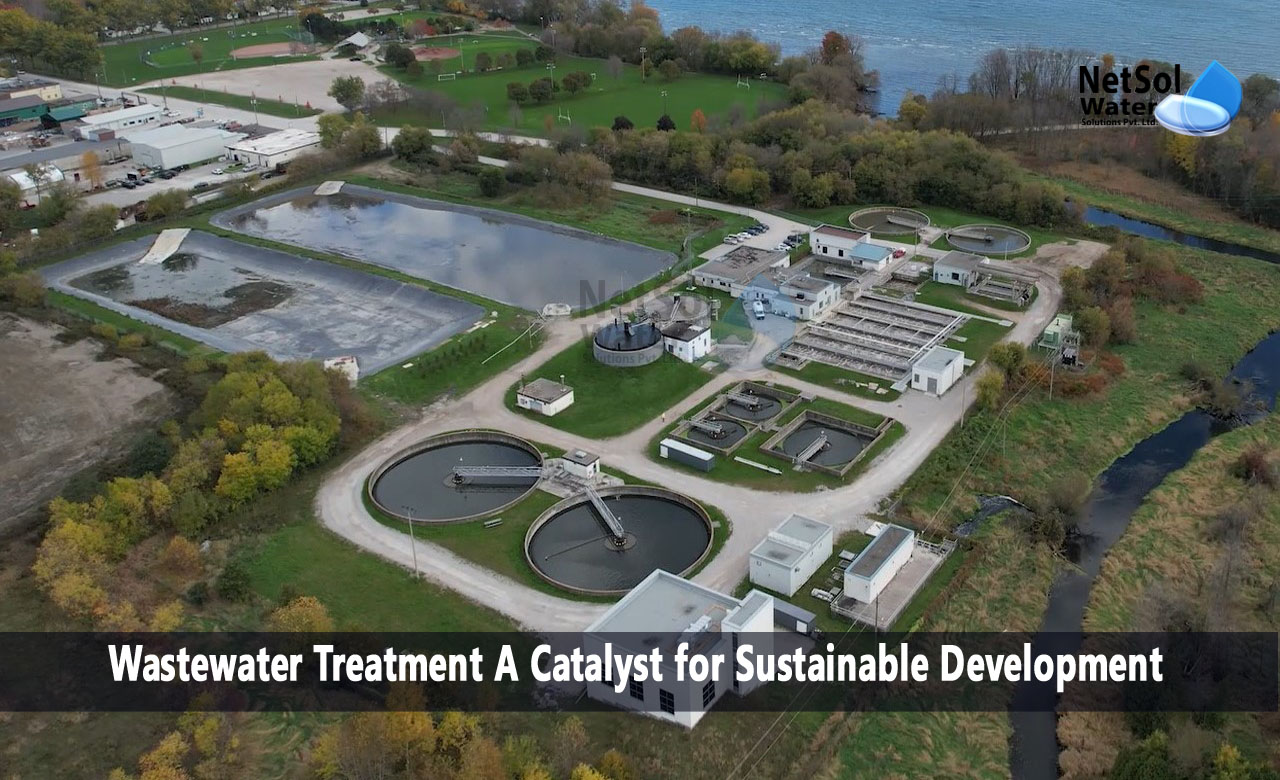Wastewater Treatment: A Catalyst for Sustainable Development
Introduction:
Wastewater treatment plays a pivotal role in achieving sustainable development by addressing environmental, social, and economic challenges. It not only protects public health and ecosystems but also provides opportunities for resource recovery and promotes water reuse. This blog highlights the significance of wastewater treatment as a catalyst for sustainable development. By integrating effective treatment practices, innovative technologies, and inclusive approaches, we can harness the potential of wastewater to contribute to a more sustainable and resilient future.
1. Environmental Protection and Ecosystem Conservation:
Wastewater treatment is essential for safeguarding the environment and preserving ecosystems. Untreated wastewater discharged into water bodies can lead to contamination, oxygen depletion, and the degradation of aquatic habitats. By treating wastewater effectively, we can minimize the release of harmful pollutants, nutrients, and chemicals into the environment.
Proper treatment removes organic matter, nutrients, and contaminants, reducing the risk of eutrophication and harmful algal blooms. This preservation of water quality ensures the health and biodiversity of aquatic ecosystems. Additionally, treated wastewater can be used to restore and enhance wetlands, rivers, and other natural habitats, contributing to ecosystem conservation and the recovery of sensitive species.
2. Resource Recovery and Circular Economy:
Wastewater containsvaluable resources that can be recovered and reused, contributing to a circular economy. Nutrients like nitrogen and phosphorus, as well as organic matter, can be converted into fertilizers or biogas through anaerobic digestion and other treatment processes. These recovered resources can replace synthetic fertilizers, reduce greenhouse gas emissions, and promote sustainable agriculture.
Furthermore, wastewater treatment facilities can generate energy from biogas produced during the treatment process. By capturing and utilizing this renewable energy source, treatment plants can become energy self-sufficient or even energy-positive, reducing reliance on fossil fuels and mitigating climate change.
3. Water Reuse and Resilient Water Management:
Treating wastewater for safe reuse can alleviate water scarcity, enhance water security, and build resilience in water management. Treated wastewater, also known as reclaimed water, can be used for various non-potable purposes such as irrigation, industrial processes, and groundwater recharge.
Water reuse reduces the pressure on freshwater sources and can provide an alternative water supply, particularly in water-stressed regions. By utilizing reclaimed water, communities can ensure the availability of water for essential needs while preserving freshwater resources for drinking purposes.
Implementing water reuse systems requires appropriate treatment technologies, robust regulations, and public acceptance. Effective monitoring and quality control measures are essential to ensure the safety and reliability of reclaimed water.
4. Inclusive Approaches and Public Health:
Wastewater treatment plays a critical role in protecting public health by preventing the spread of waterborne diseases. Proper treatment eliminates pathogens and reduces the risk of contamination in water sources. This is particularly important in densely populated areas and regions with inadequate sanitation infrastructure.
To ensure inclusive and equitable wastewater management, it is crucial to consider the needs and perspectives of all stakeholders, including marginalized communities. Engaging local communities, raising awareness, and providing access to sanitation services contribute to improved health outcomes and social well-being.
In addition, wastewater treatment facilities can serve as educational centers, providing opportunities for vocational training and employment. By involving local communities in the operation and maintenance of treatment plants, sustainable livelihoods can be fostered, enhancing social and economic development.
Conclusion:
Wastewater treatment is not just a necessity but a catalyst for sustainable development. It protects the environment, conserves resources, promotes water reuse, and ensures public health. By embracing effective treatment techniques, embracing resource recovery and circular economy principles, and adopting inclusive and participatory approaches, we can harness the full potential of wastewater to create a more sustainable and prosperous future. Investing in advanced technologies, strengthening regulatory frameworks, and fostering collaboration among stakeholders will be crucial in realizing the benefits of wastewater treatment and achieving sustainable development goals globally.
Netsol Water is Greater Noida-based leading water & wastewater treatment plant manufacturer. We are industry's most demanding company based on client review and work quality. We are known as best commercial RO plant manufacturers, industrial RO plant manufacturer, sewage treatment plant manufacturer, Water Softener Plant Manufacturers and effluent treatment plant manufacturers. Apart from this 24x7 customer support is our USP. Call on +91-9650608473, or write us at enquiry@netsolwater.com for any support, inquiry or product-purchase related query.



